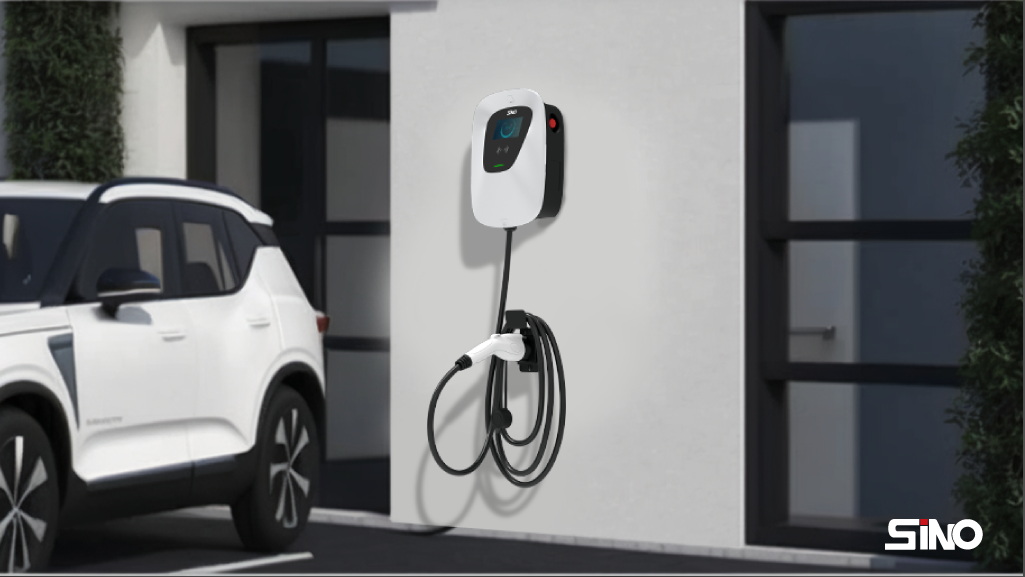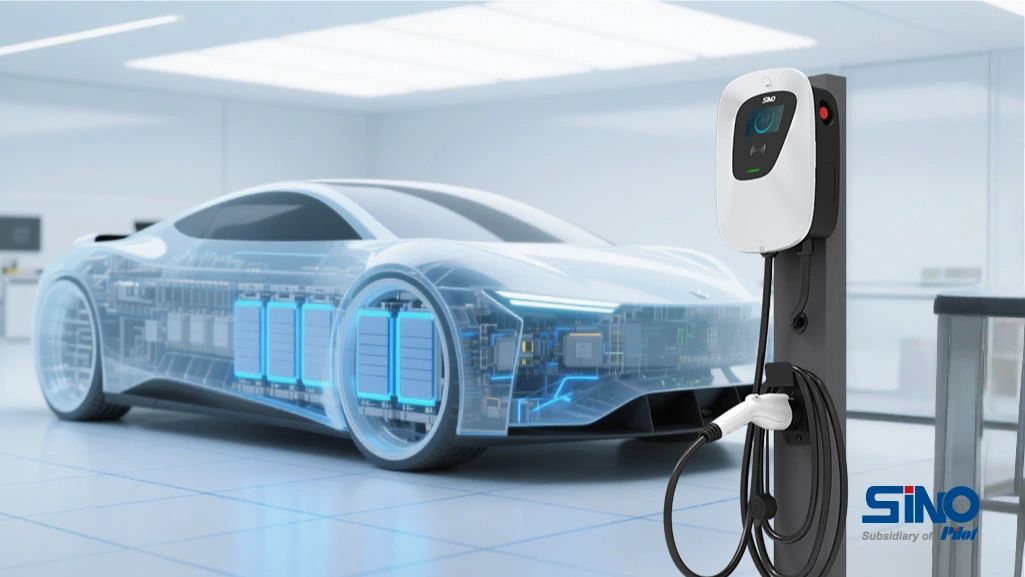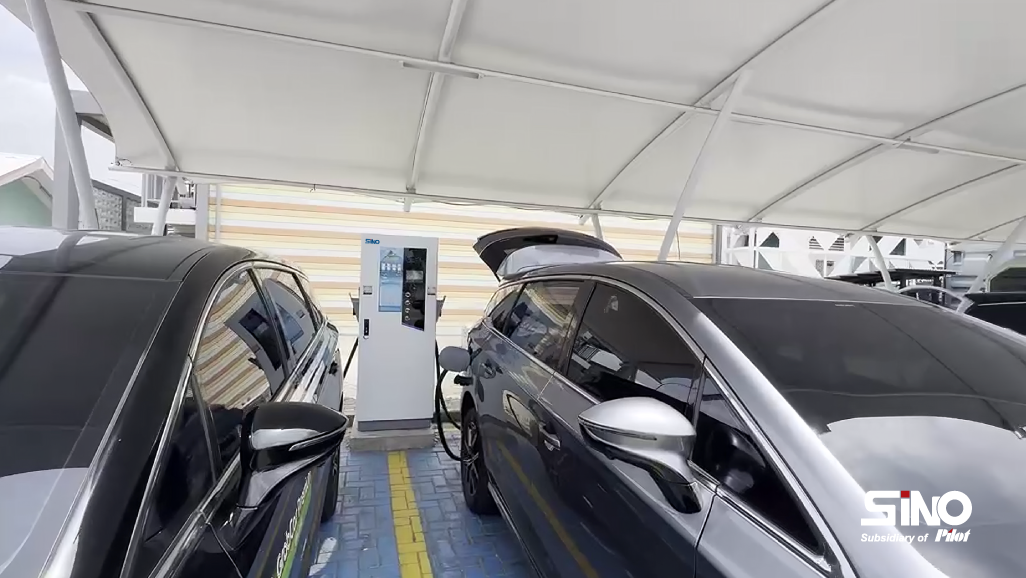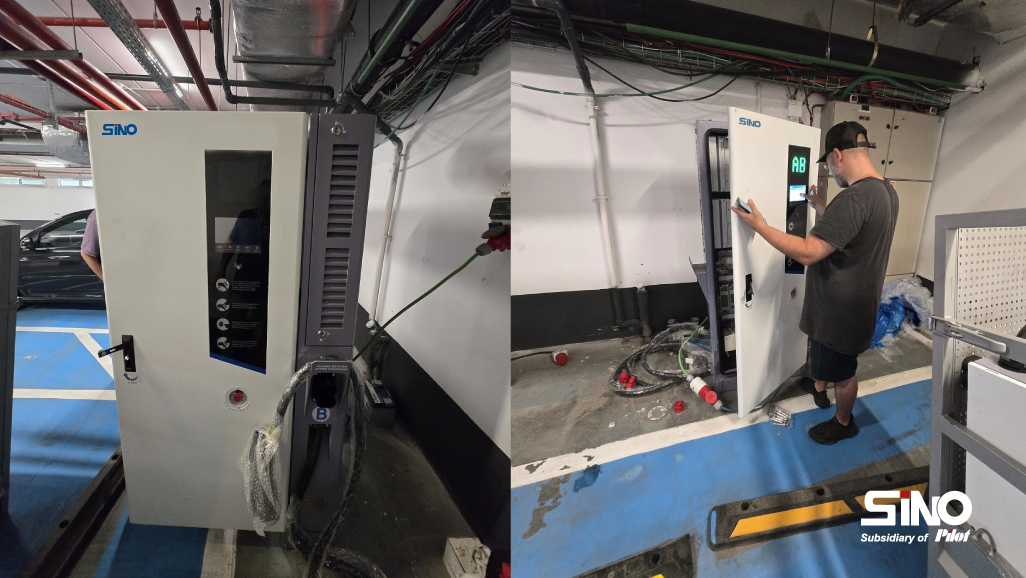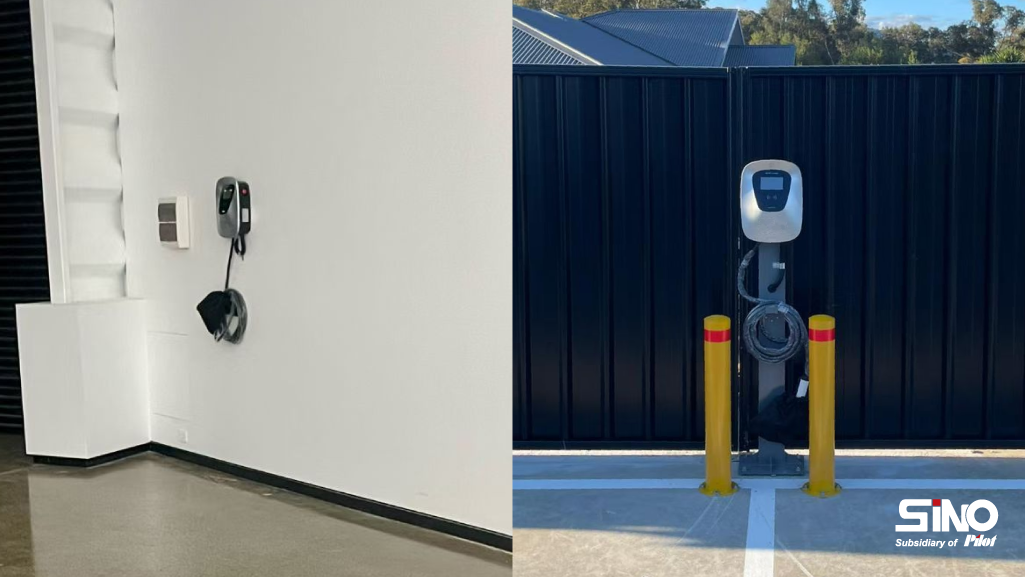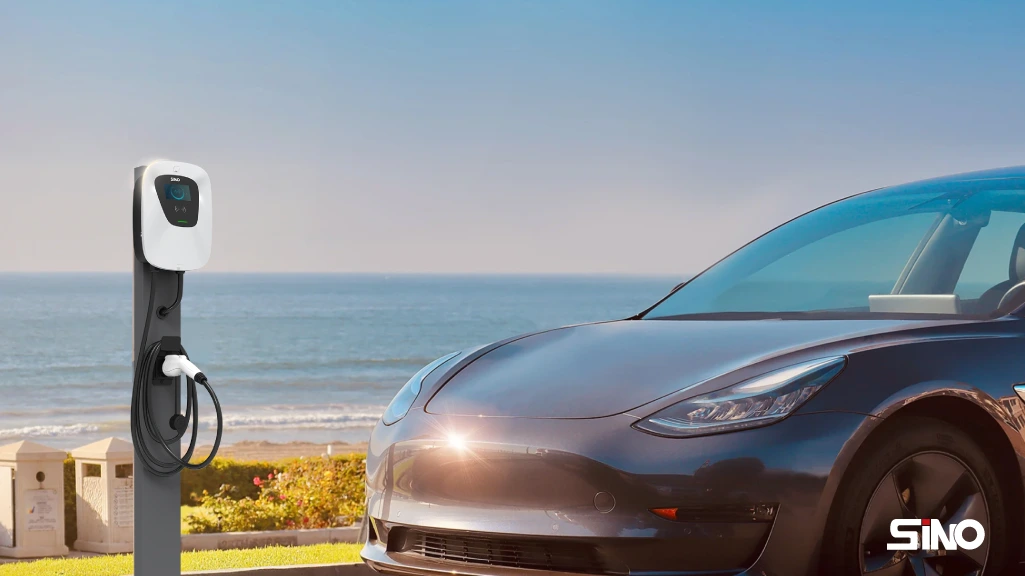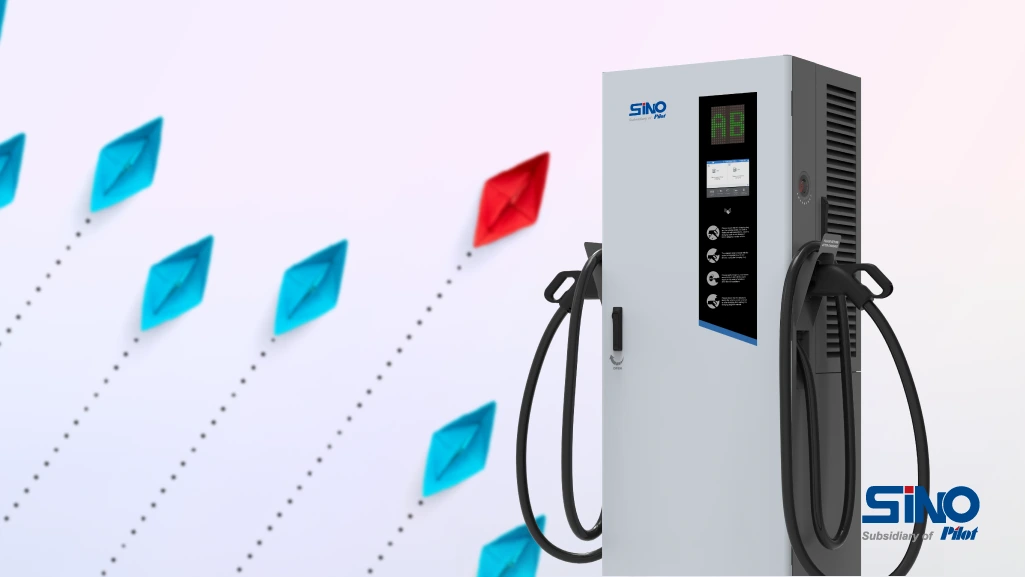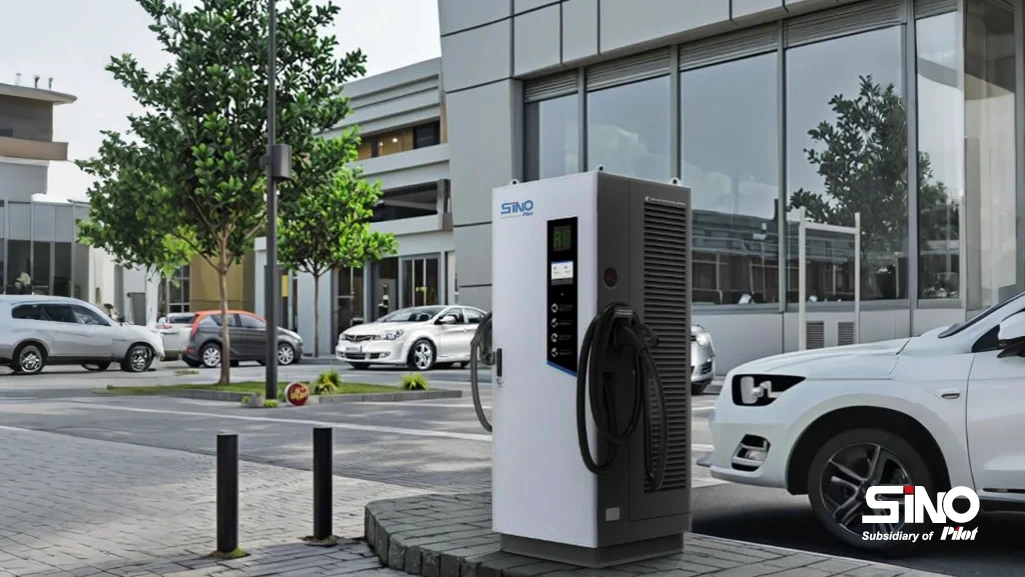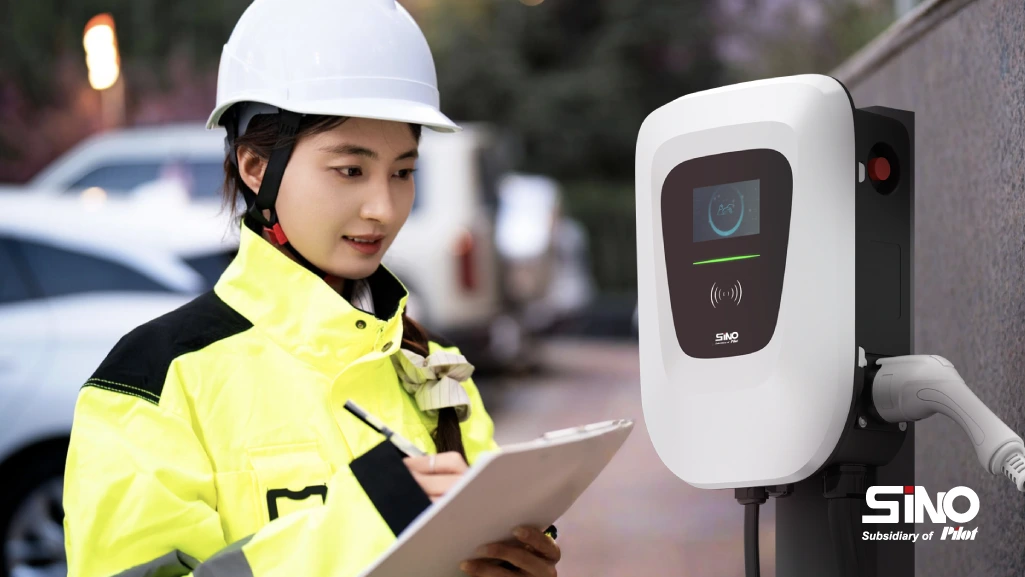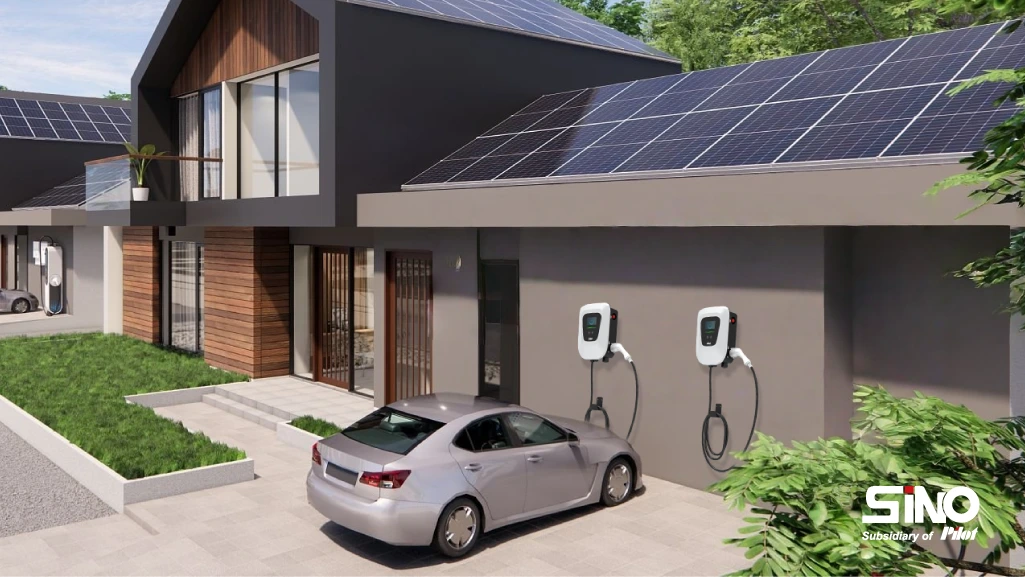Technology advances in electric vehicles create the need for quicker, more efficient, user-friendly charging solutions. Indeed, the so-called “Smart EV Chargers” offer flexibility, remote control, and cost-saving features, which currently are a must-have for many EV users. This article tries to introduce the difference between Smart EV chargers and Traditional EV chargers.
What Are Traditional EV Chargers?
Traditional EV chargers are the basic models designed primarily for Alternating Current (AC) charging. They utilize the onboard converter inside the vehicle to convert AC power from the grid into Direct Current (DC), which the battery will store. This results in slower charging speeds and has generally been employed for home charging or low-demand public settings.
Key Features of Traditional EV Chargers:
- Simplicity: With these chargers, all the user has to do is plug in and charge——nothing beyond that needs to be configured or chosen to select options for control. In other words, the user only needs to plug their EV in, and the device will be charged up; no need to monitor or manage the session.
- Cost-Effective: Conventional chargers, with fewer components and no connectivity features, are cheaper to purchase and install, hence suitable for certain cases of low-end needs.
- Common Usage: These chargers are often found in residential garages or public EV charging stations in low-traffic areas, where charging speed is less of a priority. They are also good for home charging applications where simple, reliable charging can meet daily needs.
Traditional chargers are well-suited for basic charging needs and are often found in older EV charging setups or low-traffic public locations where users don’t require advanced control features.
What Are Smart EV Chargers?
The next-generation units are smart EV chargers, integrating a suite of advanced features that further enhance convenience, efficiency, and user control. Most of the smart chargers have DC fast charging capability, wherein the vehicle bypasses the onboard converter and charges directly, reducing the time spent at the station.
Key Features of Smart EV Chargers:
- Remote Monitoring and Control: Smart chargers enable users to manage charging sessions remotely, track energy consumption, and schedule charging. It does give the user some flexibility when it comes to choosing when they want to charge their car and how much energy they use.
- Adjustable Charging Speed: Unlike traditional chargers, smart chargers allow users to control the speed of charging, making it possible to fast-charge when time is a priority or slow down to conserve energy.
- Integration with Smart Home Systems: Many of the smart chargers have integration with a home energy system for the user to align EV charging with other household energy requirements. This is really useful for those people who happen to have installed solar power systems or energy storage solutions.
- Ideal Usage: These smart chargers will suit a person willing to manage energy, understand the usage, and control the charging sessions remotely.
Smart EV chargers are increasingly popular for both home charging and commercial settings, especially in locations where efficient energy management and flexible charging speeds are necessary.

Traditional vs. Smart EV Chargers: A Detailed Comparison
Charging Speed
- Traditional EV Chargers: Normally, these are fixed-speed chargers, providing quite adequate charging speeds for customers with no need for rapid charges. Most of the traditional chargers are Level 1 and Level 2, thus giving slower charging compared to DC fast chargers.
- Smart EV Chargers: Smart charging, especially those with DC fast-charging capabilities, can surely reduce the time it takes to charge. They have flexible charging rates that allow the user to increase their speeds whenever they are in a hurry or lower them to match energy availability and grid demands. This is useful in cases of high-traffic locations or users with unforeseeable schedules.
User Experience and Convenience
- Traditional Chargers: These chargers provide a simple plug-and-charge experience, which some users may prefer due to the lack of complexity. However, this simplicity comes at the cost of control and flexibility, as traditional chargers cannot be remotely managed or monitored.
- Smart Chargers: Smart charging enhances the user experience by offering remote control, real-time monitoring, and integration with mobile applications. With this, users will have the option to schedule their charging sessions, monitor energy consumption, and even get notifications about their charging status. Moreover, many such smart chargers will also support mobile payments; apart from that, they will provide real-time information about station availability for better convenience.
Cost and Maintenance
- Traditional Chargers: Generally have a lower upfront cost due to their basic design and limited technology requirements. They require minimal maintenance, as they lack complex components that could need frequent servicing. However, the long-term costs can be higher, especially in commercial settings where energy management and load balancing are critical.
- Smart Chargers: Although these may be more costly in terms of initial investment, the added convenience, control, and potentially attained savings in energy costs will pay for this over time. Smart chargers can also help reduce long-term maintenance costs through remote diagnostics and automatic software updates, minimizing the need for on-site servicing.
Traditional and Smart Chargers in Various User Settings
Home Charging
- Traditional EV Chargers: Traditional chargers work quite all right in residential settings where their users can afford the time for slower charging. They are an affordable option for homeowners who charge their vehicles overnight.
- Smart EV Chargers: These offer additional functionality for a householder who wants more control over their energy use, often including remote monitoring, scheduled charging, and integration with solar or other home energy systems. Smart chargers stand to lower costs simply by being able to schedule the charging in off-peak hours and provide better energy management in smart energy setups in homes.
Public Charging
- Traditional Chargers: Traditional chargers are usually found in less-congested areas or even older infrastructure, where a simple plug-and-charge solution is sufficient. However, their major limitation is poor charging speed under high-traffic and high-demand conditions.
- Smart Chargers: Smart chargers lead the fore in public stations when turnover is extremely high, as features like load balancing, real-time monitoring, and app-based payments enhance station efficiency and user experience.
Commercial Fleet Charging
- Traditional Chargers: While suitable for smaller fleets with minimal charging needs, traditional chargers are less ideal for high-usage fleet operations that require efficient, organized charging.
- Smart Chargers: These are preferable for the fleet manager, as they have a function with detailed energy tracking, load management, and cost control. It allows for diagnostics to be done remotely, along with load balancing, among many things that need to be in place for maximum fleet efficiency and reduction or even complete elimination of downtime. All these added functionalities of smart chargers translate into smoother operations, energy savings, and reduced maintenance burdens within commercial fleets.
Why Choose Smart EV Chargers?

For Manufacturers
Smart EV chargers provide a competitive edge in an evolving market by appealing to consumers’ needs for advanced technology and convenience. EV charging station manufacturers can differentiate their products by offering features that enhance connectivity, energy efficiency, and compatibility with other smart devices.
For EV Charging Business Owners
Smart chargers empower business owners to manage and optimize energy usage, reducing operational costs through remote diagnostics and load balancing. They also support payment integration and data collection, providing valuable insights into user behavior and station performance. Smart chargers find a ready application in high-traffic public stations since data collection and customer management are useful to enhance station utilization and profitability.
For Consumers
Smart charging adds value to the individual owner’s convenience and functionality, through remote access, scheduled charging, and real-time energy usage and cost. This kind of control would be welcomed by users who appreciate flexibility in their charging schedules and would want to integrate it with smart home charge systems that efficiently manage overall household energy consumption.
How Smart EV Chargers Work
The idea behind smart EV chargers is simple: they use IoT (Internet of Things) technology that enables them to talk with other devices over a wide variety of advanced functionalities. Here’s a closer look at How Smart EV Chargers Work:
- Connectivity: Equipped with Wi-Fi, cellular, or Ethernet capabilities, smart chargers connect to mobile apps, web dashboards, or energy management systems. This allows users to access their chargers remotely: they can schedule charging sessions, monitor energy usage, and adjust the speed at which they are charging.
- Energy Management: Smart chargers monitor energy usage in real-time and dynamically adjust the charging rate according to the demand of the grid, user preference, or at a scheduled time. The smart charger can also connect to other connected devices, including solar panels and on-site energy storage systems, and enable users to optimize energy use based on renewable energy production or cost savings during off-peak hours.
- User Interface: Charger control is enabled by mobile apps or web interfaces to initiate and terminate charging sessions, view the status of charging, or send notifications. Many smart home chargers integrate with the smart home charge system to better enable interoperability with solar power, energy storage solutions, and other home automation technologies.
Smart chargers offer both individual EV owners and fleet operators detailed insights into charging patterns and energy consumption, enabling a proactive approach to energy management and cost savings.
EV Charging Technology: What’s Next?
With the advancement of EV technology, newer trends and innovations in charging may will be:
- Ultra-Fast Charging: Ultra-fast chargers may reduce the charging time drastically, fully charging a car in less than 15 minutes, which will go a long way in enhancing convenience for users who intend to travel long distances and drive at high mileage.
- Wireless Charging: Some of the major EV wireless charging applications involve state-of-the-art, innovative hands-free solutions using wireless charging pads. It can completely rule out cables, thereby best suiting either commercial or home application needs. Especially for commercial charging stations, it can present promising solutions in wireless fleet charging with no manual plug-in and can introduce the ease of automated charging.
- Vehicle-to-Grid (V2G) Technology: This makes it possible for the V2G technology to facilitate EVs in supplying electricity back to the grid during peak times, aimed at evening out energy demand and providing backup power for homes and businesses. V2G integration will further give EVs even more value to the energy grid, continuing to enhance smart chargers’ functionality with the ability to work both ways.
Convenience——more speed and better integration with smart home and energy management systems——is thus likely to come from these developments. Smart chargers, equipped to handle these new technologies, will play a central role in future energy solutions for both individual and commercial users.
FAQ
1. What is the difference between a smart charger and a traditional EV charger?
The conventional EV charger is a device that enables a plug-and-charge feature, where no attribute for connectivity or remote feature exists. An intelligent charger, on the other hand, can offer advanced functionalities like remote monitoring, scheduling, and integration with smart home systems.
2. Are smart EV chargers worth the higher upfront cost?
Some of the long-term benefits include smart chargers saving energy, ensuring user convenience, and offering a host of other features related to load management and real-time monitoring, which are of very high value for many users.
3. Can I install a smart EV charger at home?
Yes, most definitely, smart EV chargers are already very available for installation in households and boast scheduling features, among others, in tracking energy usage and better lowering overall electricity costs.
Our Social
Facebook: www.facebook.com/sinoevc
Instagram: www.instagram.com/sinoevc
Linkedin: www.linkedin.com/company/sinoevse
Youtube: www.youtube.com/@sinoevc
Twitter: www.twitter.com/sinoevc

“Charging For A Better Life”



